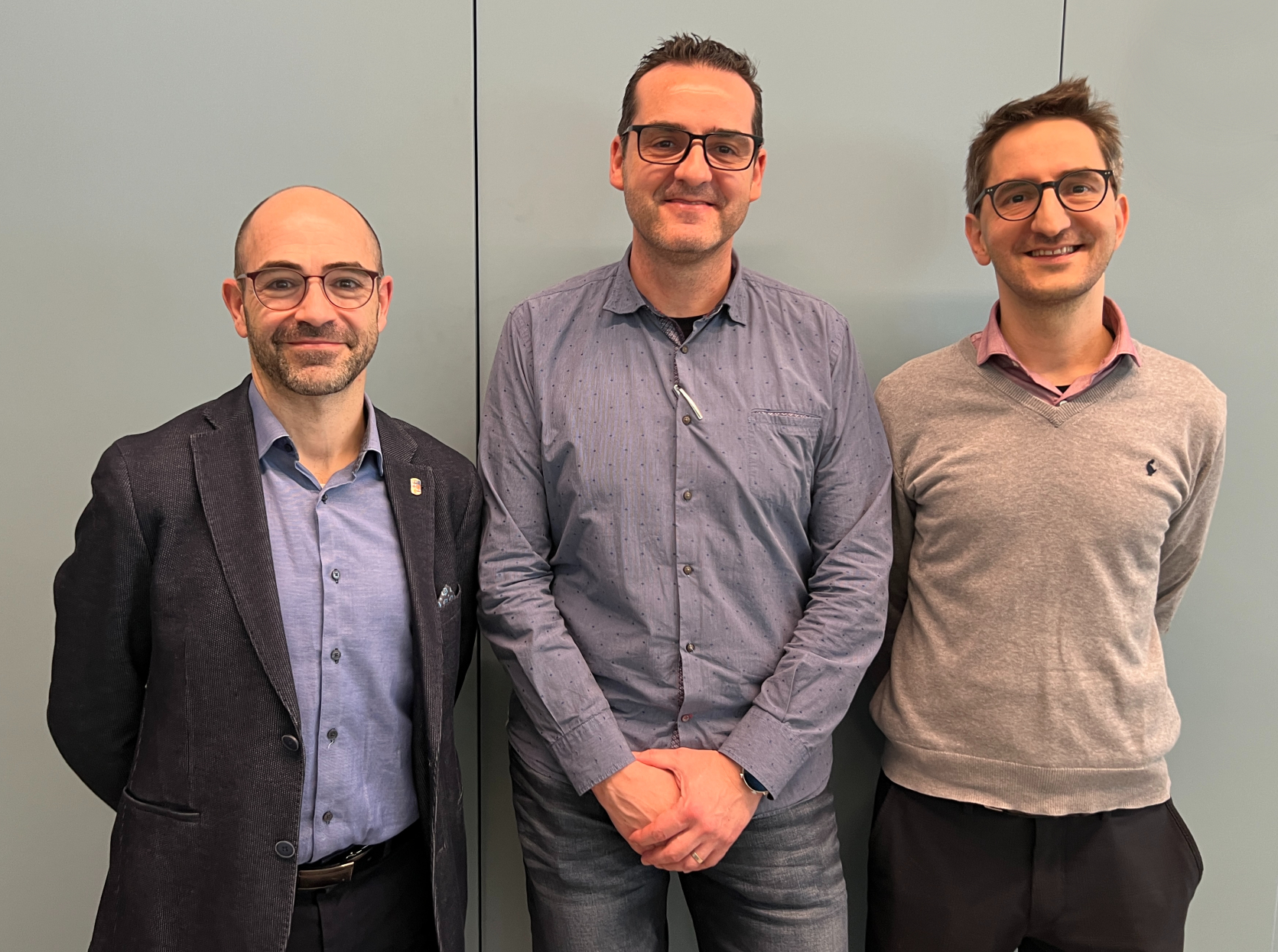
The University of Barcelona promotes an innovative and innovative and sustainable project in the manufacture of photonic circuits
Optoelectronic and photonic integrated circuits (PICs) are essential in many modern technologies, but their current manufacturing presents major problems: it requires costly processes, high temperatures, toxic chemicals and scarce materials, with a high environmental impact. Moreover, production takes place largely outside Europe, creating dependence on external supply chains.
In response to these challenges, the University of Barcelona (UB), through the Bosch i Gimpera Foundation (FBG) and with the support of Banco Santander, has awarded a Proof of Concept grant of 25,000 euros from the Fund for the Promotion of Innovation (F2I) to the project ‘Demonstrator of an LED matrix based on perovskites, manufactured with inkjet technology (MAT-LED)’, led by Dr. Sergi Hernández, professor at the Faculty of Physics of the UB.
This project proposes an innovative solution based on inkjet printing to manufacture photonic circuits with halide perovskites. This method is more efficient and sustainable than traditional processes, as it does not require large-scale lithography and operates at low temperatures, thus reducing energy consumption and material waste. In addition, it allows manufacturing on rigid or flexible surfaces, with the possibility of industrial scale-up.
The main objective of the project is to develop optoelectronic devices with two demonstrators: a monochrome matrix and an RGB matrix of LEDs for microdisplays. The researchers are working to optimise these devices to achieve scalable functional arrays of at least 16×16 pixels. To this end, they use different types of perovskites as active layers and combine them with charge transport layers. They also plan to encapsulate the devices to ensure their durability under environmental conditions.
‘We want to reduce energy costs and production costs in the manufacture of the devices, and bring this technology closer to the public,’ says Dr Hernández.
A future patent
In addition to technological research, the MAT-LED project will finance patentability studies, market studies and technical and commercial feasibility analyses, with the aim of creating a spin-off and establishing partnerships with companies to transfer this innovative technology to the industrial sector.
‘We are very happy to have received this support from the University of Barcelona. This will position us very well for the patent we are working on and for future calls to exploit our product,’ concludes Dr. Hernández.
With this project, the University of Barcelona reaffirms its commitment to research and sustainable innovation, promoting more efficient and environmentally friendly technologies.

